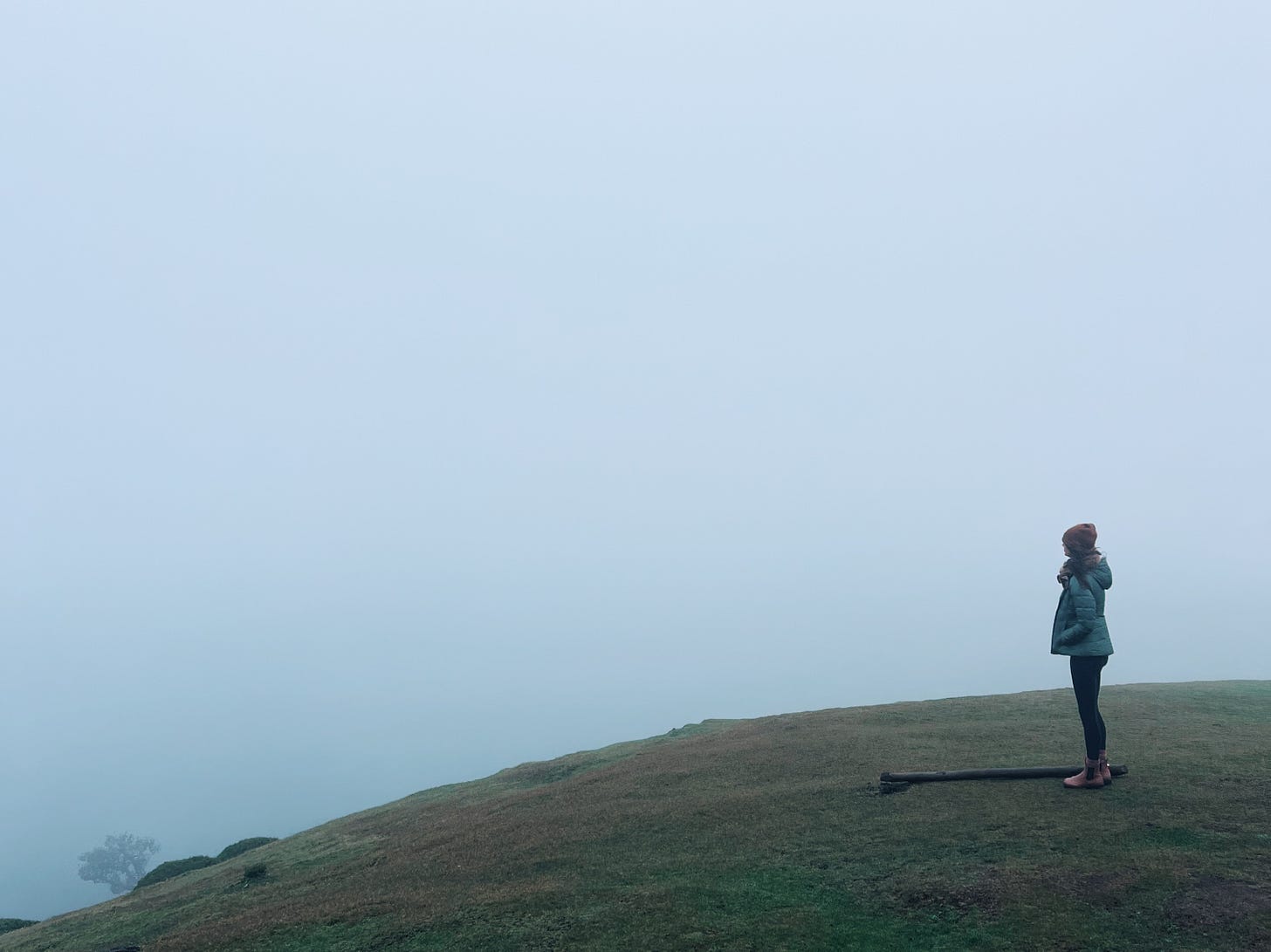Welcome to the “Hello, From the Other Side” series, a (non)advice column from someone who's been there and (currently) lives to tell the story. This is one person’s perspective to help shed light on the grief experience and to help others feel less alone.
Please note that I am not a therapist. I don’t have any official expertise, but I do have experience. Lots and lots of experience.
Q: As someone further out on her grief journey than me, what do you wish others knew about grief? — Young & Misunderstood in Grief
Hello, Young & Misunderstood -
When I was early into my loss, my grief was so all-consuming, that I wondered how it didn’t permeate into everyone I came in contact with. It felt so big, I wondered how it didn’t stop the world from turning. But my grief was also intimate and personal — hidden in the crevices, the violent filling of the cracks of my life. Of course, everyone knew I was grieving, how do you not when losing your husband at 33? But most didn’t see it, not really. Or worse, didn’t want to see it.
Instead of showing up and sitting in the wreckage with me, the words, “Let me know if you need anything” echoed in the imprint of their absence.
It was as if the world waited with bated breath for me to emerge, over it, and ready to move on with my life.
Whenever I showed signs of life (a drink with friends, a weekend trip away, the ability to spend an evening out without losing control of my tears), I could feel the collective sigh of relief around me. The proof I would be fine.
I was told I was brave, applauded as an inspiration, and praised when I found joy.
Few dared to acknowledge the raging pain that was ravishing my insides. To stare into my darkness and let it swallow them whole. To look at my grief — at me — and say, “I’m here.”
Instead, my grief was mostly ignored, replaced with shallow smiles and affirmations that I’d move on, leaving me feeling more alone than ever.
There is so much I wish people knew about grief because how can we support something we can barely look at? How can we show up for what we refuse to see?
In hopes of furthering both the conversation and the understanding of what it means to live in the aftermath of loss, here are 10 things I wish people knew about grief:
One of the greatest gifts is to show up and hold space for a griever, in spite of your own discomfort. Leave the well-intended, but often flat, platitudes at home.
There is no “normal” in grief and it’s not your place to judge how someone chooses to survive. Rebuilding a life requires a lot of trial and error. Mistakes will be made.
Grief is not linear and, in some capacity, lasts forever. The assumption that one will suddenly be over it, is shortsighted and offensive.
Even with the best support, grief is incredibly isolating. Oftentimes, the grief is most acute in a room full of loved ones.
There is so much guilt associated with moving forward. But continuing to live is not a betrayal to those we have lost. You can love what you have and mourn what you lost.
Grief isn’t just mourning the loss of a person. It’s also mourning the past, present, and future versions of yourself. It radiates out, touching all the crevices of one’s life.
Oftentimes it’s not the big milestones and anniversaries that are the hardest, but the quiet, everyday moments no one sees. The Saturday mornings alone or the trip to the grocery store can be especially brutal.
Grief changes relationships because grief changes a person. To be a good friend, be curious about this new version. Don’t be afraid to wade in the muck and keep checking in. Always.
Saying their name will not remind us they died. It reminds us that they lived. Please share the stories and continue talking about them.
There is joy in grief. And there is grief in joy. One does not eliminate the other.
What is something you wish more people understood about your grief? I’d love to hear your thoughts below.
Have a question for a future column? Ask it here.
Looking for a community of others who get it? Consider joining the Forced Joy Club.






All your points are so true and well stated. Here are my thoughts after almost eight months of widowhood.
1. That grief never ends, it changes. Or rather we learn to manage and live with it.
2. We choose to be open to joy and peace. If I dwell on the pain and loss I set myself up for a downward spiral. Instead, I start the day with gratitude and positive affirmations and choose to live in the now, not the past.
3. Processing the grief takes time. Months later it can still sneak up on you when you feel stable and strong. Realizing that I am now an individual and no longer need to consider your other half. That revelation still makes me cry.
5. Community is important. If you don’t have people close by, get out and meet some. Join a group, volunteer, take a class; just live as much as possible.